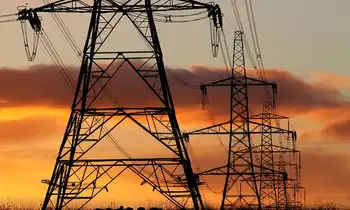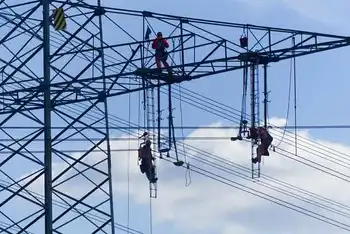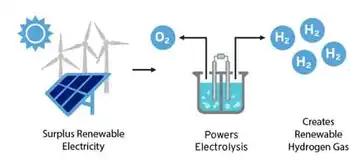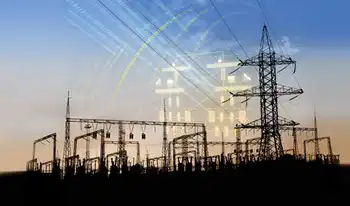Some farmers call land offer 'an insult'
By Wisconsin State Journal
Substation Relay Protection Training
Our customized live online or in‑person group training can be delivered to your staff at your location.

- Live Online
- 12 hours Instructor-led
- Group Training Available
That's the case, though, with a 35-mile, $133 million line that would run from the town of Christiana in eastern Dane County south to the town of Beloit, in Rock County.
Known as the proposed Paddock-Rockdale line, named for the electrical substations marking each end, the 345-kilovolt transmission line is expected to win the Wisconsin Public Service Commission's approval in May or June.
Citizen groups are not raging against the plan, nor are environmentalists crying foul. Citizens Utility Board executive director Charlie Higley said the line "is probably a good idea."
But there are a few unhappy campers — namely, some farmers over whose land the high-voltage line will hang. They say American Transmission Co. (ATC), the Madison utility company that owns, operates and builds much of the electricity highways carrying power around the state, is offering insultingly low compensation for use of their land.
Franklin Lien, his wife, Beverly, and sister-in-law Carolyn Lien grow soybeans and corn on their 1,200 acre farm in Christiana. Franklin Lien said an ATC representative proposed paying $7,000 an acre for land that would be used to expand the Rockdale substation.
"This is prices from years ago," Franklin Lien said. "We've already sold land to the village of Rockdale for a sewer plant for $30,000 an acre. Other (farmers) in the area got $40,000 for a lot to build a house on.
"You kind of look at those figures and $7,000 an acre doesn't get you excited," he said.
Lien said ATC also proposed paying him $79,000, or 10 cents a square foot, for a mile-long easement to allow the new line to run across his property.
Landowners fear the prices being tossed around on this project are a strong signal for what's to come on a much bigger transmission proposal just around the bend — the 35- to 55-mile, 345-kilovolt line planned to traverse the width of Dane County.
Mary Carpenter, ATC local relations representative, wouldn't comment on specific prices but said they are just the first step in negotiations. "It's not at all unusual for there to be differing starting points," she said.
Local farmers are not objecting to hosting the highly charged transmission line, said Franklin Lien's brother, Stanley.
"My people don't have a problem with the line as long as they do it right," said Stanley Lien, a former Christiana Town Board chairman. Lien has submitted papers to the PSC that allow him to represent nine Dane County land owners in the Paddock-Rockdale case.
One reason the proposal hasn't attracted a lot of attention is that the favored route is along an existing transmission line path. It would require adding only about two miles of right-of-way, Carpenter said.
In the 1970s, decades before ATC was created in 2001, local utility companies negotiated with some of the same farmers to put the existing line across their land. Easement payments then were 24 cents a square foot, Stanley Lien said.
Now, 30 years later, the offer to his brother amounts to 10 cents a square foot for an easement. That's "an insult," Stanley Lien said, and promised a court fight if no agreement is reached.
If the project is approved, here's how the process works:
• ATC enters formal negotiations with landowners for easements to use their property.
• If no agreement is reached, both sides can hire appraisers and negotiate again.
• If they still can't agree, ATC makes its final offer. If the landowner doesn't accept it within 20 days, ATC can file a circuit court petition seeking condemnation.
• A condemnation commission decides appropriate compensation. If either side rejects that, the case can be heard by a judge or jury.
The entire process can take eight months to a year, said Teresa Kochaver, ATC's real estate manager.
"If utilities don't want to come out of the 1950s, then we're going to fight," Stanley Lien said.











